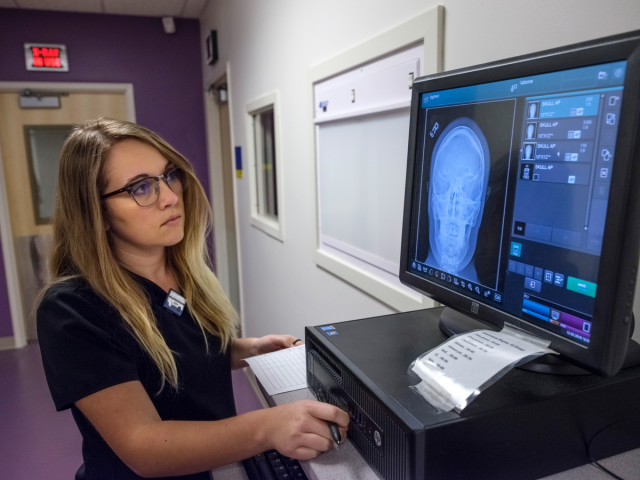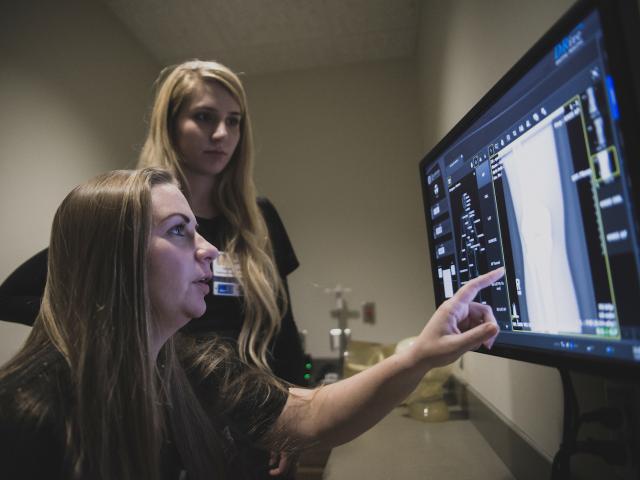
Learn how to perform electroencephalograms (EEGs) under the direct supervision of expert faculty and healthcare providers.
Before applying for this program
Candidates for this program must interview with a participating health care employer and be hired as an apprentice to be able to participate in this program. This associate's degree is designed as an apprenticeship program with hospital-based clinical education delivered in partnership with a participating health care employer.
Please contact imagingsciences@grcc.edu for a list of participating employers and start dates for the next cohort.
Neurodiagnostic Technology
Neurodiagnostic Technologists are highly skilled, and in-demand medical professionals. Their specific skill set in recording electroencephalograms (EEGs) is what sets them apart from other healthcare professions.
This program focuses on teaching you how to apply cranial surface electrodes and record an electroencephalogram. Upon completing the program, you will be prepared to take and pass the EEG certification exam administered by the American Board of Registration of Electroencephalographic and Evoked Potential Technologists (ABRET).
This program offers courses online, in college campus labs, and rotating hospital internships, provided by affiliating hospitals, clinics and other EEG provider facilities. Hands-on learning with Neurologist Dr. Mounzer Kassab, makes this program unique and optimal for success.
The EPiC EEG program fosters the skills and knowledge necessary for competent practice in EEG, with an emphasis on professional attitudes, values and behaviors that will encourage your professional growth.
How the Neurodiagnostic Technology Apprenticeship program works
This program is offered through a partnership with other Educational Programs in Collaboration (EPiC) Consortium. Each college enrolls students in the program under their admission criteria and each awards the degree according to that college’s completion requirements.
Students in the program complete Neurodiagnostic Technology courses delivered in an online environment by one of the EPiC colleges through MWTEC.
Clinical education courses are arranged through the EPiC Consortium’s educational coordinator in collaboration with the Neurodiagnostic departments of affiliating hospitals, clinics or other Neurodiagnostic Technology provider facilities. These experiences are developed to meet the established objectives and eligibility requirements of the American Board of Registration in Electroencephalographic (ABRET) exam and prepare students to complete the Neurodiagnostic Technology certification exam.
Additional Information
Want to learn more about this area of study?
Visit the Department of Imaging Sciences
Questions about this program?
Department email: imagingsciences@grcc.edu
Department phone: (616) 234-4349

